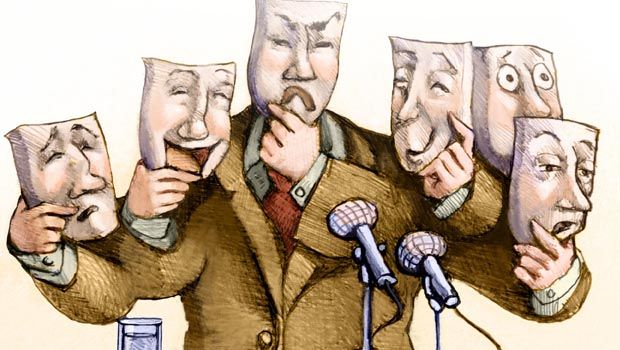The times we live in make it imperative to understand the underlying mechanisms of social media, what benefits and harms it poses, and how to use it wisely and in accordance with Islamic principles. These social platforms have come as a blessing to us as we can instantly reach out to our friends and families across the world. We use Facebook, Instagram, TikTok, Snapchat, WhatsApp, YouTube, LinkedIn, Pinterest, etc., to talk to them and share information with them, most surprisingly, without any cost. Nonetheless, as the saying goes “there ain’t no such thing as a free lunch,” and we do pay a “price” for it, an invisible but hefty price.
To understand that fully, we have to understand the business model of social media. It is built on the economic model called “attention economy” and we pay the price through our “attention.” The other leg of this economic model is the network effect, i.e., we empower it by being connected to it. “Attention” and “connectedness” are the foods for this beast. The more they can capture our attention, the better they can sell us to their customers, the advertisers.
It’s very difficult to not fall into the trap of the carefully designed “algorithms” that grab our attention, but we can try a few strategies and techniques that can help us to dodge the harmful snare. First, to understand if you’re a victim of this business model, see how many of these symptoms apply to you:
- The app’s notifications are turned on and you have the urge to check instantly at the buzz of a notification
- The first thing that comes to your mind in the morning is the number of reactions to your post.
- You feel the urge to “tell” everyone what you had for breakfast, lunch, or dinner — day after day.
- You can’t wait to return home from your vacation to post all the “cool” pictures of amazing food, fun activities, and places you visited during your trip.
- Your app’s video feed has auto play enabled, thus hooking you for hours.
- You can’t resist a day without publishing a post even if it’s something relatively meaningless, or a personal status like “feeling lonely” that should be expressed to a family member, good friend, or counselor, not the public.
Enormous Benefit
If used appropriately, however, social media also brings enormous benefit. Never in human history have we been so connected in such a convenient manner. Each and every one of us is like a live broadcaster. We can reach out to our families and friends across the world. We can share ideas and information with others. We have access to a wealth of knowledge and varying content, an availability that was unthinkable in past human history. You can get all the top-ranked universities’ lectures or join their live classes from across the world. One would have to be a fool to deny the benefits of it. But what we don’t realize is that the social media companies intend to predispose us to virtual relationships rather than face-to-face relationships. These companies are making billions of dollars as they constantly preach to use their tool and replace our real life with their virtual reality (e.g., the metaverse). Make no mistake, it comes with enormous risks that can destroy the fabric of society and every individual from the inside.
Following are some of the risks:
- Access to so much content in a short time narrows attention span. It’s hard for an individual to stay focused on a particular topic for more than a few minutes. One is constantly allured to the “next cool” thing on the side — be it a recommendation or an advertisement. To feed “the beast,” it will ensure that you are hooked into their platform with “must see” baits such as, posts, pictures, memes, and videos.
- The deliberate design of social media feeds this diminishing attention span and ability to concentrate. Humans are built with peripheral vision. It allows us to see the surroundings even when we’re focusing on a particular thing in front of us. This is a mechanism of self-protection against unexpected harm. Social media technologists know that very well and they frequently pop things up on the screen to allure you to the place that benefits their business. Once your brain gets used to that frequent interruption, then it becomes your patterned behavior. This is devastating for you regarding your knowledge acquisition, ability to focus, or living a life with intentionality.
- Everyone tends to share their carefully curated “polished” persona with the world. So, you will be seeing the best of everyone: their most attractive selfie, stunning vacation place, the luxurious food, the awards they receive, the highest promotion at their job, the number of likes they get with their posts, and on and on. Imagine you have a few hundred “friends” and you constantly see their “success” stories only. That will prompt you to set unrealistic goals to be best at everything and be happy all the time. This creates psychological issues as you are constantly comparing yourself to this one or that one, or to the sum total of your friends’ “successes.”
- Social media platforms are designed to flood you with information so you don’t get time to check the validity or authenticity of the information. Moreover, they make it easy, often with one click, to share with any social media platforms and groups. This may sound trivial on the face, but this has an enormous impact on society. As Muslims, we are commanded to act responsibly and to not share anything but verified and authentic information (Quran 49:6 and 24:15).
- The most deliberate attack is by the advertisements. You may say, “what’s the big deal?” You are used to newspaper, TV, or billboard ads. Yes, those also have psychological and emotional effects, and even subliminal influences; but it’s like comparing raindrops to a cyclone. Most importantly, artificial Intelligence algorithms use individualized data to target and drag you where they can best make a profit (i.e., using your personal data and connections to promote goods and services to you in a personalized way). It hooks you to the screen for a long time by showing you one-after-another “interesting” post that allows them to charge higher prices to their advertisers. Ads are intended to make you think you need their product and therefore throws you into the material rat race.
- Another subtle but consequential impact of social media on our society is that we become numb. Repeated sensationalized, fast-moving images and news may numb our senses and exhaust our emotions. If we get used to watching on a screen tragedies and incidents of violence or oppression and reacting virtually with a simple click of the mouse, then we might no longer seek to take action in real life in support of social justice, no longer making effort to relieve the suffering of others.
Using Social Media Responsibly
So how do we benefit from the power of social media? Until the social media companies change their business model from the attention economy into something less harmful, we can take back some control in our own hands and create a fence around some of the harmful aspects of social media. Here are some suggestions:
- Define your social media goals. Here are a few examples of beneficial use of social media — to connect with family and friends who live far away, to access educational resources, to engage in commerce, to carry out activism and awareness campaigns. The bottom line is to make sure that you use these platforms to advance the goal you set forth. Frequently check if you’re staying within those boundaries. If you find yourself drifting away from that goal, get back to the “lane” immediately.
- Time is the most scarce commodity we were sent to this earth with. Use it wisely and with extreme caution. This alone will help shape your success or failure in life. Set aside a certain time in the day to use social media. Another alternative is to select certain days in the week instead of every day. Make your boundaries and stick to the plan.
- If your kids need to use YouTube/social media for learning, have them use it in an open space at home where other family members can monitor what they are accessing, and remind them of the importance of moderate use.
With the internet and social media, we can reach countless individuals across the globe. We have access to all knowledge and to an enormous number of opinions on any topic. Two things are good to keep in mind, however. Regarding the business model of social media platforms, as mentioned above, we want to ensure that we don’t become willing victims to their snares of profit-seeking. We do that by responsibly and deliberately using social media in a moderate and highly conscious way.
And secondly, as Muslims, we also want to make sure we don’t disseminate information that is untrue, biased, or harmful. It is important to check what you find on social media. There is often “the other side to the story” that is being ignored or untold. Seek out alternative views and weigh what each side is saying as you try to discern the truth or reality of the story. One technique that is used in formal research is called “triangulation.” It facilitates the validation of data by using three or more sources. While use of triangulation in regard to social media is certainly more casual than the triangulation that is used in formal research, it highlights the need to avoid hearing or reading some claim made online and “running with it” without checking out its validity or reliability.
Only as astute and responsible users of social media can we benefit from it while avoiding its harms.






